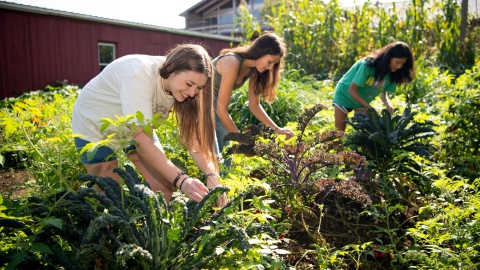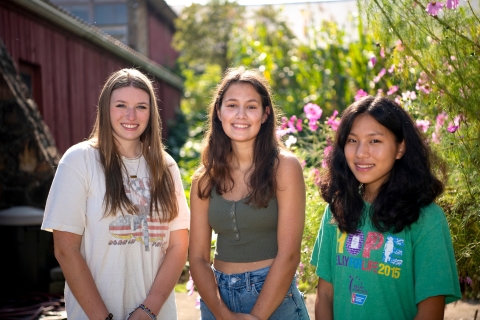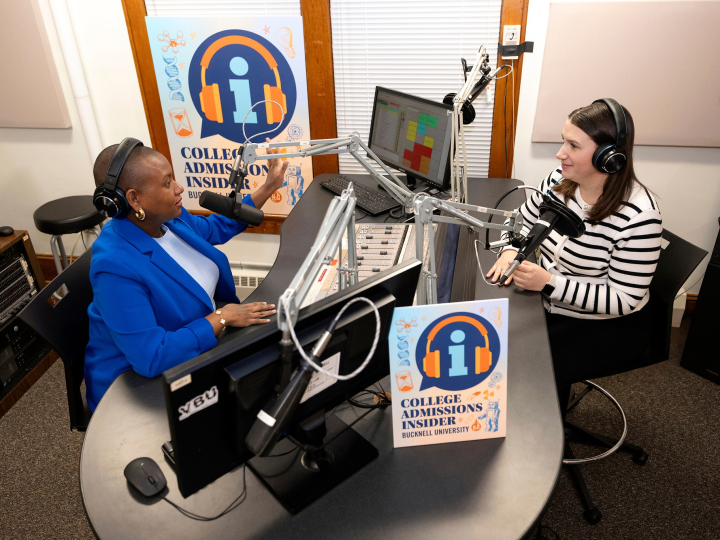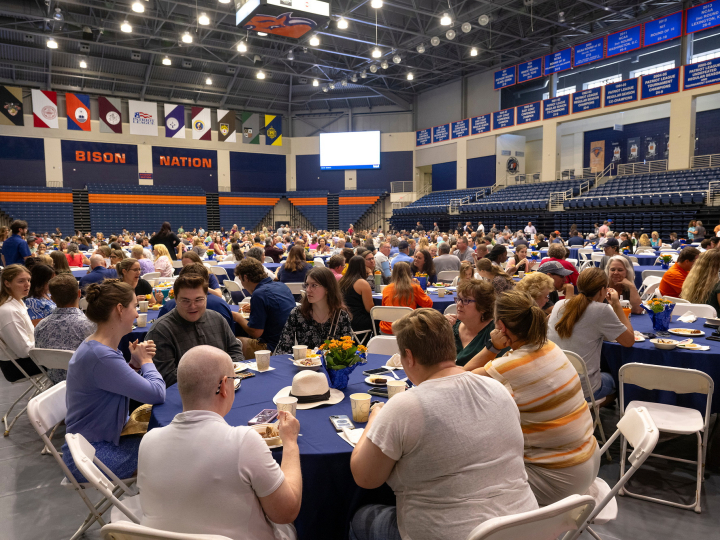
Organic Engagement: Student Work Helps Preserve Local Farming History
November 10, 2021
Students have helped the Walnut Acres Foundation create an oral history of the organic farm, apply for National Register of Historic Places recognition, launch a digital museum and more. Photo by Emily Paine, Communications
Sinet Kroch '22 clings tightly to memories of harvesting crisp vegetables, playing with soil and chasing butterflies on her family's farm in Cambodia. As the daughter of farmers, Kroch's childhood was full of seasonal produce and meats from the family's livestock.
"Everything was homemade and always fresh," she says. "That farming background is what got me interested in our relationship with the earth and the food it provides."
Kroch is now an environmental studies major at Bucknell and one of several students who have worked to support a landmark local organic farm with deep, historic connections to the University.
Long before pesticide-free food became a national trend, Paul and Betty Keene established one of America's first organic farms in 1946 in nearby Penns Creek, Pa. Walnut Acres Organic Farm quickly formed close ties with Bucknell, hosting international student dinners and providing an immersive landscape for science courses.
As one of the nation's first vertically-integrated organic food companies, Walnut Acres grew, processed and mailed its products directly to consumers for more than 50 years. Although the brand was sold in 2000, a parcel of the farm's land serves as home base for a foundation dedicated to preserving the Keenes' legacy as organic farming pioneers.
From creating an oral history of the farm to applying for National Register of Historic Places recognition, Bucknellians have been instrumental in helping the Walnut Acres Foundation cement the farm's place in history — all with support from the environmental studies department and the Bucknell Center for Sustainability & the Environment (BCSE).
During summer 2020, Kroch advanced efforts to achieve historic registration for the site by cataloging and archiving paper artifacts — including Paul Keene's newsletters to customers — and investigating construction regulations for old and new buildings.
"To qualify as a historic site, there's only so much building and renovation that you can do," Kroch says. "So it's important to be clear on what exactly is possible in the future as the foundation develops and expands."

From left: Natalie Ring '22, Anna Brown '25 and Kaitlyn Segreti '25 are now helping the Walnut Acres Foundation develop new initiatives. Photo by Emily Paine, Communications
This fall, even more students are working to help the foundation develop new initiatives. Under the guidance of BCSE Place Studies Program director Shaunna Barnhart, first-year students Anna Brown '25 and Kaitlyn Segreti '25 have hit the ground running with individual projects through Bucknell's Presidential Fellowship program.
Segreti's role builds upon work begun in summer 2021 by Natalie Ring '22, who helped launch a digital museum on the foundation's website. Ring's contribution, an interactive virtual timeline, contextualizes the farm's role in the organic food movement and is the first of several virtual exhibits that will eventually correlate to a physical museum on site. Those remaining exhibits will draw upon Segreti's research into the farm's array of food production equipment, including the Keenes' apple butter kettle, pea viner and peanut butter processors.
Meanwhile, Brown is managing the organic certification application for the onsite community garden. It's a lengthy and exhaustive process that requires collecting documentation on everything from the origin of seeds to the composition of compost. If approved, that certified seal will allow Walnut Acres to deliver crops to regional food insecurity programs, making locally-grown, organic produce available to the most vulnerable.
"I spend a lot of time working with the foundation's head gardener, who shows me how he uses sustainable farming practices," says Brown, an environmental science major. "It's been so eye-opening to learn about the complexity of industrial agriculture firsthand, and to see the ways sustainability is at work even in small communities like ours."
For Kroch, who's now working with Barnhart to co-author a book chapter on Bucknell's engagement with Walnut Acres, "telling the story of these places plays a pivotal role in preserving them within our communities," she says. "The stronger our connection to organic farming, the more agency we all have in deciding what's on our plates."

